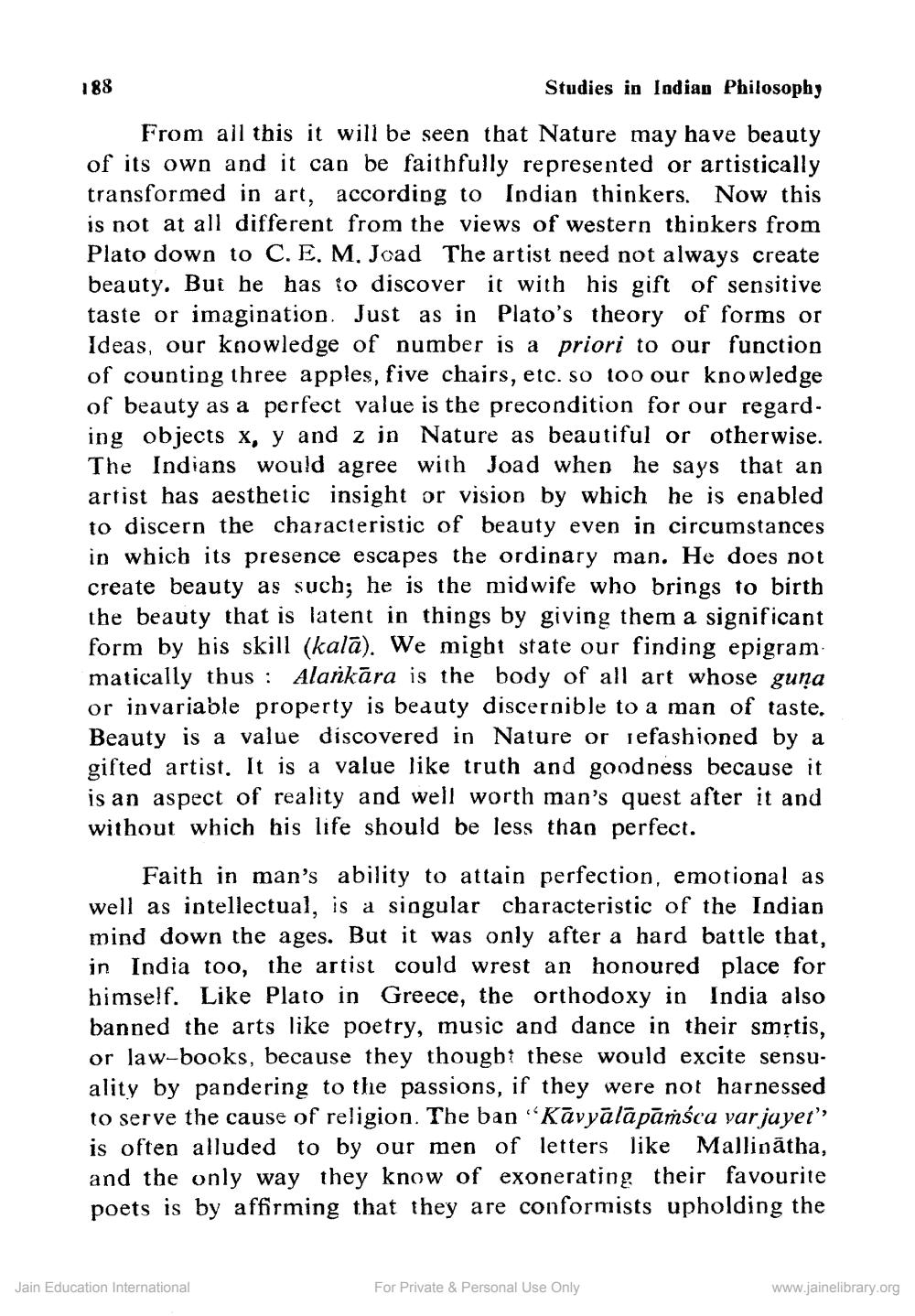________________
188
Studies in Indian Philosophy
From all this it will be seen that Nature may have beauty of its own and it can be faithfully represented or artistically transformed in art, according to Indian thinkers. Now this is not at all different from the views of western thinkers from Plato down to C. E. M. Joad The artist need not always create beauty. Bui he has to discover it with his gift of sensitive taste or imagination. Just as in Plato's theory of forms or Ideas, our knowledge of number is a priori to our function of counting three apples, five chairs, etc. so 100 our knowledge of beauty as a perfect value is the precondition for our regarding objects x, y and zin Nature as beautiful or otherwise. The Indians would agree with Joad when he says that an artist has aesthetic insight or vision by which he is enabled to discern the characteristic of beauty even in circumstances in which its presence escapes the ordinary man. He does not create beauty as such; he is the midwife who brings to birth the beauty that is latent in things by giving them a significant form by his skill (kalā). We might state our finding epigram matically thus : Alarkāra is the body of all art whose guna or invariable property is beauty discernible to a man of taste. Beauty is a value discovered in Nature or refashioned by a gifted artist. It is a value like truth and goodness because it is an aspect of reality and well worth man's quest after it and without which his life should be less than perfect.
Faith in man's ability to attain perfection, emotional as well as intellectual, is a singular characteristic of the Indian mind down the ages. But it was only after a hard battle that, in India too, the artist could wrest an honoured place for himself. Like Plato in Greece, the orthodoxy in India also banned the arts like poetry, music and dance in their smrtis, or law-books, because they thought these would excite sensuality by pandering to the passions, if they were not harnessed to serve the cause of religion. The ban Kavyālā pāśca var jayet's is often alluded to by our men of letters like Mallinātha, and the only way they know of exonerating their favourite poets is by affirming that they are conformists upholding the
Jain Education International
For Private & Personal Use Only
www.jainelibrary.org




